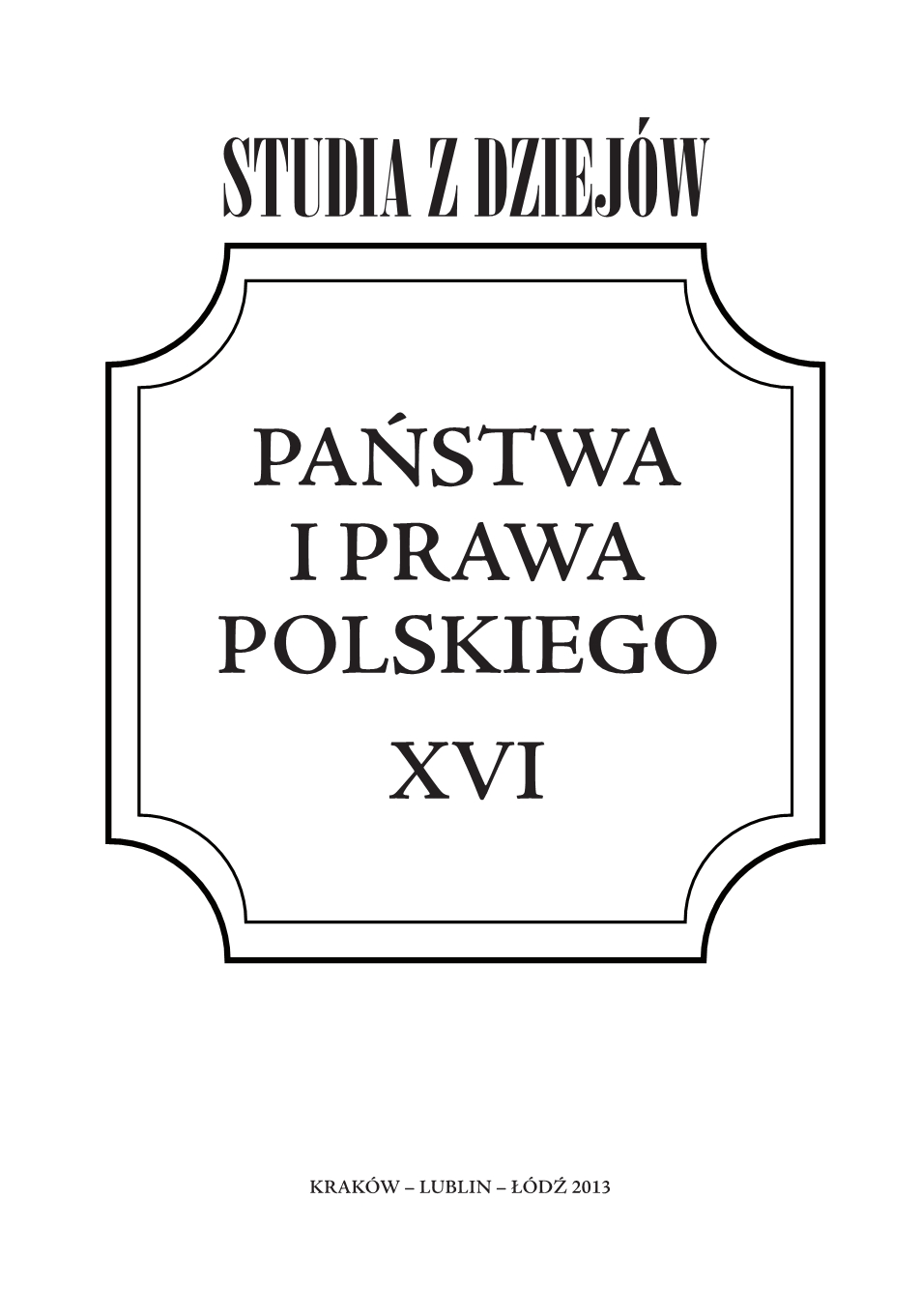Polityka deflacyjna II Rzeczypospolitej a prawo lat trzydziestych XX wieku
The deflation policy of the Second Republic vs. the law in the 1930s.
Author(s): Robert JastrzębskiSubject(s): Agriculture, Economic history, Economic policy, Interwar Period (1920 - 1939), Law on Economics
Published by: Oficyna Wydawnicza AFM Uniwersytetu Andrzeja Frycza Modrzewskiego w Krakowie
Summary/Abstract: The economic crisis of the 1930s had a vast impact on its contemporary legislation. The economic downturn experienced by the Second Republic entailed an agricultural crisis, as approximately 3 in every 4 Polish citizens found sustenance in agricultural production. A drastic drop in the prices of agricultural produce was a major problem of agricultural, legal, and social nature. The anti-crisis legislation of the 1930s consisted of a number of regulations focused on conducting a policy of integral deflation. The regulations concerned a number of realms of law, yet practically these were mostly laws normalising questions related to agriculture. The anti-crisis legislation in the Second Republic aimed primarily at debt reduction. The law of the 1930s was to play a subordinate role towards the concept of economic policy, and in this way to provide a tool for its achievement.
Journal: Studia z Dziejów Państwa i Prawa
- Issue Year: XVI/2013
- Issue No: 1
- Page Range: 269-282
- Page Count: 14
- Language: Polish

